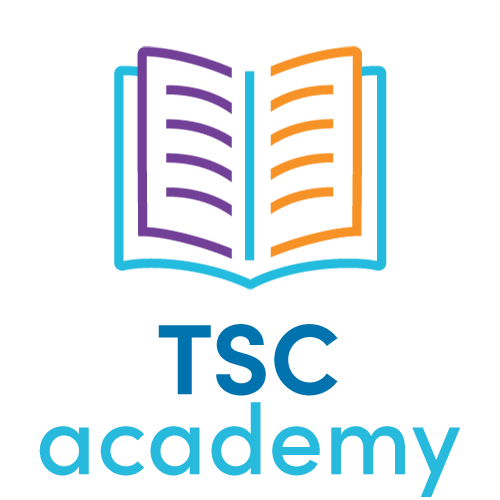
People with tuberous sclerosis complex (TSC) face many medical issues as they age, including new-onset seizures or ongoing epilepsy. Studies indicate more than 80% of individuals with TSC will develop epilepsy at some point in their life.
Many individuals will face the onset of seizures before the age of 3. There is always a risk of infantile spasms in individuals from birth to the age of 2. It is not uncommon for individuals to develop new seizures or to experience a return of seizures after being well controlled for long periods of time.
Some individuals with TSC, who did not have seizures as a child, could begin having seizures as adults. Generally, the seizure type(s) experienced by adults with TSC will be more easily treated with anti-seizure medications than childhood-onset seizures.
Occasionally, the onset of seizures will result from a buildup of pressure in the brain due to the presence of a subependymal giant cell astrocytoma (SEGA), a non-cancerous tumor that occurs in about 15% of individuals with TSC. Individuals with TSC often undergo magnetic resonance imaging (MRI) of the brain throughout adolescence and early adulthood (at least until the age of 21 years) to monitor for the presence and growth of a SEGA.
In adults with TSC who have been previously undiagnosed, the first sign of the tumor may be blurring of vision and/or the onset of seizures, but the symptoms may be more subtle. A brain MRI can reveal whether a SEGA may be blocking the flow of cerebrospinal fluid around the brain, causing increased pressure on the brain. In many individuals, the SEGA can be removed by surgery. Everolimus was approved by the Food and Drug Administration (FDA) in October 2010 for treatment of TSC-associated SEGAs that are not candidates for curative surgery.
Evaluation of new-onset seizures in adults
All individuals with new-onset seizures should request a referral to a neurologist, preferably one who is an epileptologist with knowledge of TSC. This neurologist will perform a complete neurological exam, as well as brain imaging (MRI or CT) and an electroencephalogram (EEG) to determine if there is abnormal brain wave activity. They may perform other examinations to identify the cause of the seizures and the type of seizures. Sometimes it may be necessary to complete long-term EEG using an ambulatory outpatient EEG monitor (a portable device) that can be worn at home. Alternatively, the neurologist may require inpatient video EEG monitoring that requires a stay in the hospital where medical professionals are able to record both EEG and video to determine what the seizure looks like and how it is associated with brain wave changes. The test results will guide the physician and the individual to make the best choice of treatment for the seizure type(s) the individual with TSC is encountering.
Issues for women with TSC
Hormonal fluctuations of the menstrual cycle can influence the incidence of some types of seizures. Not all seizures are sensitive to estrogen and progesterone ratios; however, this possibility may influence the choice of hormonal contraceptives. Importantly, women with TSC are at risk of developing the lung manifestation lymphangioleiomyomatosis (LAM). Use of estrogen is not advised for women with LAM, so it is critical for a woman with TSC who has epilepsy to discuss these medication issues with her health care providers.
Additionally, some anticonvulsant medications can interact with estrogen-based contraceptives and the result can be a lowered rate of efficacy, leading to unintended pregnancy. A higher dosage estrogen pill might be appropriate for women using epilepsy drugs that affect the rate at which the liver metabolizes estrogen. The dosage for emergency contraception (morning after pill) will also depend on the type of anticonvulsant medication a woman takes. The use of barrier methods such as a diaphragm, sponges, or condoms is appropriate for women with epilepsy.
Furthermore, women with epilepsy have special concerns when they decide to get pregnant. Some anti-seizure drugs are not advised for women who are pregnant, so it is important to discuss this with both your neurologist and gynecologist/obstetrician as soon as you decide to—or find out you are—pregnant. Women with TSC are also encouraged to meet with a geneticist or genetic counselor so that they fully understand the risk of passing TSC on to their children. Each child of a woman with TSC has a 50% chance of inheriting TSC, so pregnancy is something that needs to be carefully considered and discussed between the prospective parents.
Issues for men with TSC
Many men with epilepsy will experience changes in sexual drive and performance. For example, many men report a decrease in sex drive and almost one-third of men with epilepsy report difficulty achieving and maintaining an erection, known as erectile dysfunction (ED). In many cases, ED may result as a seizure medication side effect but other medical issues may cause ED. However, this reaction to one medication does not mean you will have the same experience with another. Recurrent uncontrolled seizures may also lead to diminished sex drive and ED. In fact, when seizures are under control, people seem to have improved sexual desire and performance. Men experiencing ED should visit a urologist to get help determining a cause and getting treatment. In addition, men should talk with their neurologist or epileptologist about trying another seizure medication, if possible, in case the ED is a side effect of one medication.
Hormones play an important role in sexual function, and some men with epilepsy have alterations in normal hormone levels. Both seizures and anti-seizure medications can interfere with the way the body uses hormones, resulting in sexual problems. An endocrinologist, or endocrine specialist, may be able to help sort out the complex interactions between hormones, seizures, and medications.
Reviewed by Ashley Pounders, MSN, FNP-C, November 2023.








